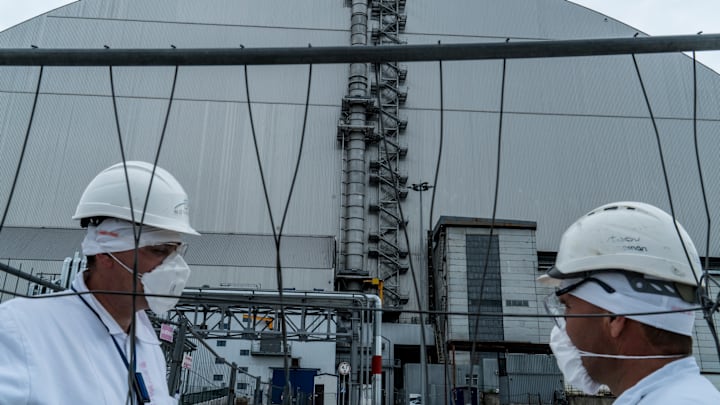The humanitarian consequences of Russia’s invasion of Ukraine continued to mount Tuesday after Ukrainian officials announced that the Chernobyl nuclear plant has lost its electrical power. It’s a development that could potentially have serious repercussions for Europe.
According to Ukrenergo, the power grid operator of Ukraine, Russian forces have cut off the electrical supply to the plant, leaving the station with no power. Chernobyl, site of a catastrophic nuclear accident in 1986 that allowed radiation to escape to the surrounding area, needs power to maintain the cooling process required to cope with the lingering danger of the site.
While the site has emergency generators in the event of an outage, they’re expected to last just 48 hours.
It’s currently hard to discern the threat of the plant. Ukraine is demanding Russia agree to a cease fire to allow workers to repair the power supply, warning that radiation leaks could endanger Europe if the coolant is allowed to evaporate.
“After that evaporation will occur, that will lead to nuclear discharge,” a Ukrainian government statement said. “The wind can transfer the radioactive cloud to other regions of Ukraine, Belarus, Russia and Europe.”
But the International Atomic Energy Agency said that the cooling water at the site is sufficient to remove heat without power. However, the IAEA also said it had lost contact with the monitoring systems at the plant.
There is also concern about the status of the plant’s workers, who normally rotate in and out of the area to avoid dangerous exposure to radiation. Since Russia secured the site, they’ve been unable to leave.
Chernobyl has long been considered untenable, with safe occupation unlikely. Prior to the current conflict with Russia, it was a popular tourist destination. There are also some civilian residents near Chernobyl, primarily people who refused to evacuate during the initial 1986 disaster. Animals like bears, wolves, and deer have also thrived in the largely unpopulated area.
[h/t The Washington Post]
